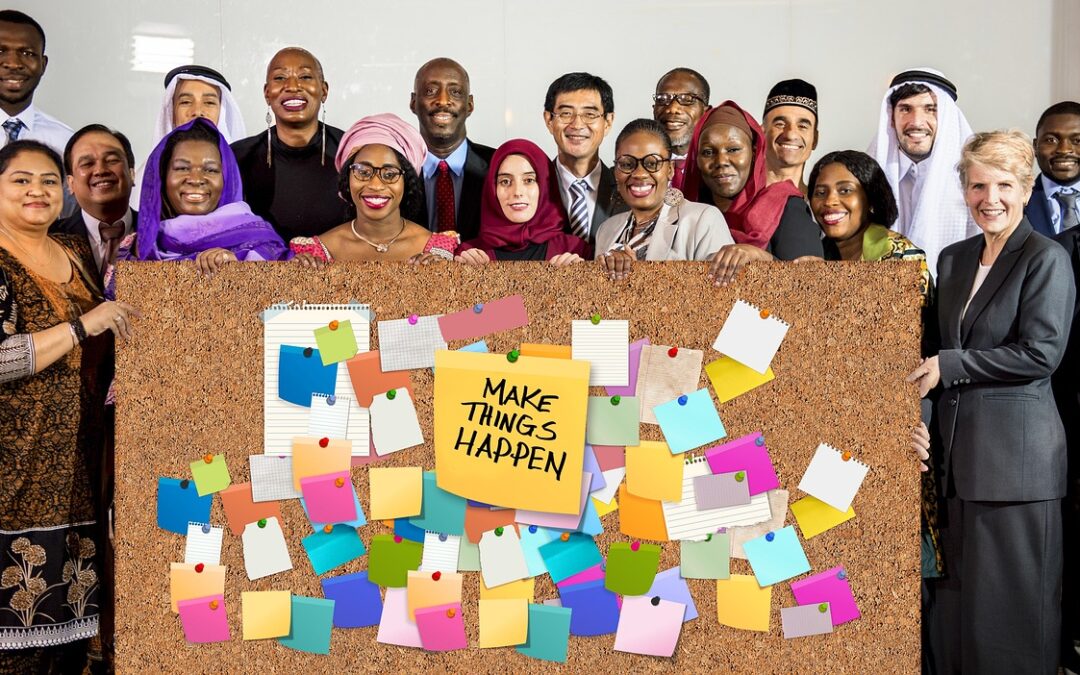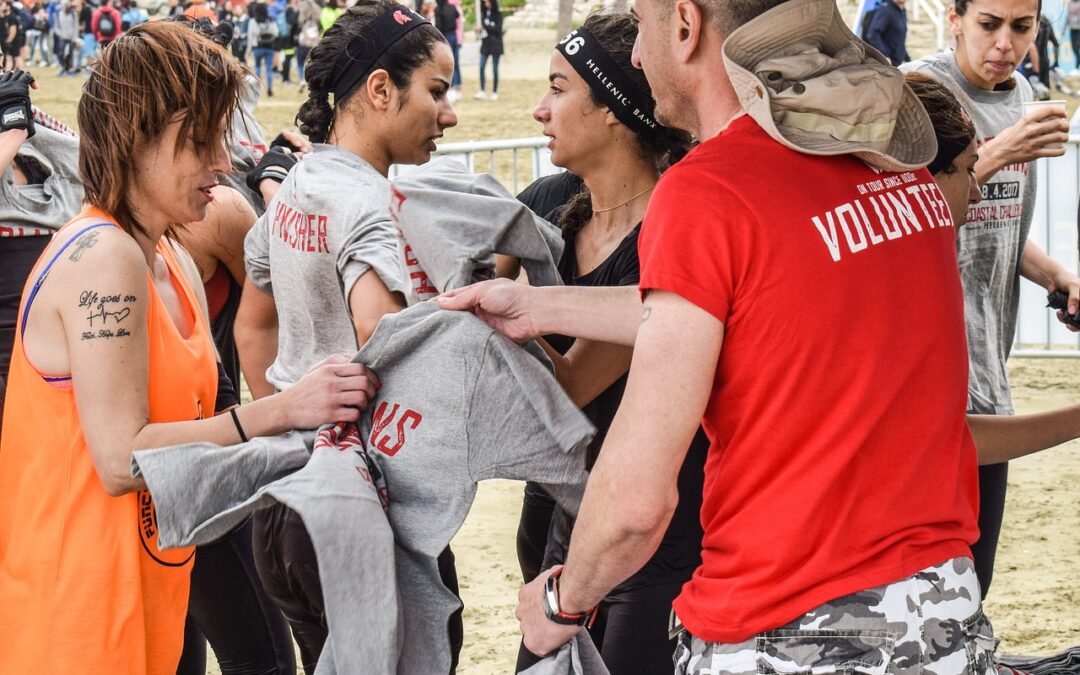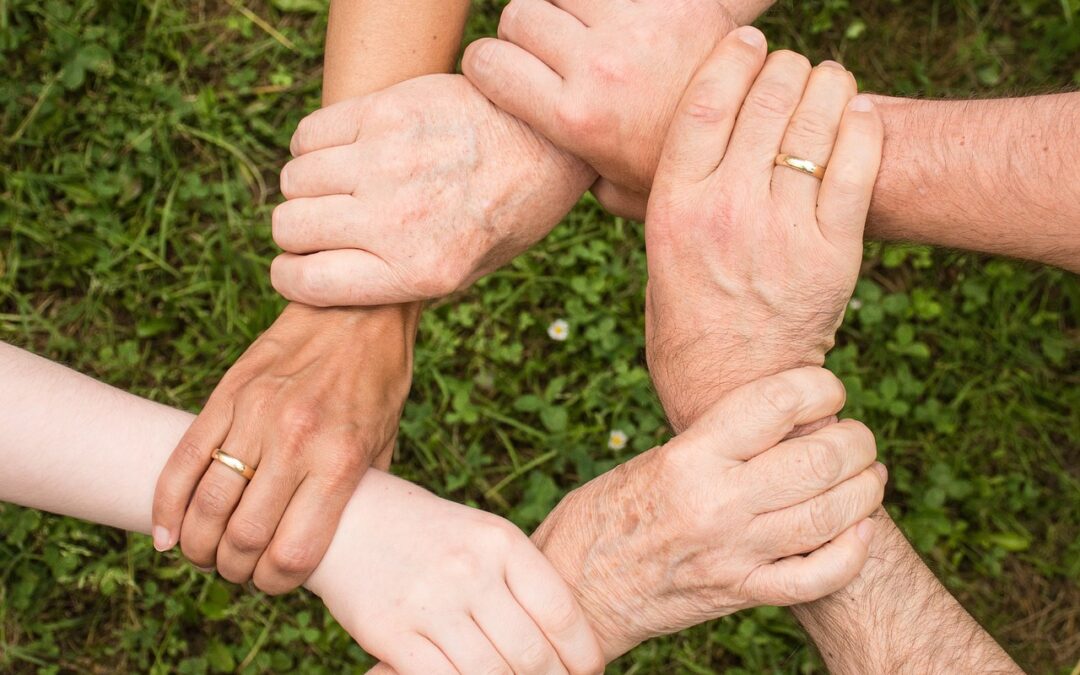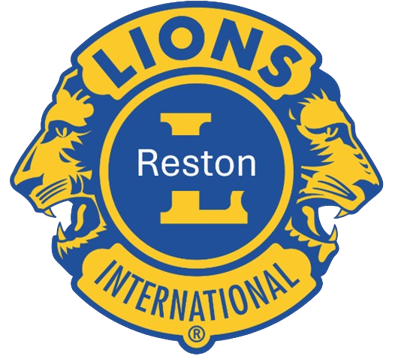


Vision Walk
For more information about the DC Metro VisionWalk, including sponsorships and registration, contact
Kristi Wass, Event Director, at
Phone: 410-423-0645
email: KWass@FightingBlindness.org.
Schedule:
10AM Registration
11AM Stage Presentation
11:20AM Walk Start

Joining the Pride: How to Become a Member of the Lions Club
Join the Reston Lions Club in Reston, VA
When it comes to community service, few organizations boast the reach and impact of Lions Clubs International. Known globally for their commitment to sight conservation, the Lions Club also engages in diverse activities that benefit the young, the elderly, and the vulnerable. If you’re considering joining this prestigious service club, this comprehensive guide will walk you through why and how to become a member of the Lions Club, detailing the enriching experiences that await you.
Understanding Lions Clubs International
Lions Clubs International was founded in 1917 by Chicago business leader Melvin Jones and has since grown into one of the world’s largest service club organizations. With over 1.4 million members across more than 200 countries, Lions Clubs are dedicated to solving major, globally-shared problems, including blindness and diabetes prevention. Each club tailors its activities to meet the needs of the local community, so no two clubs are exactly alike (Source: Lions Clubs International, Lions Clubs International.
The Mission and Work of the Lions Club
Before deciding to join, it’s important to understand the mission that drives Lions Clubs International: “To empower volunteers to serve their communities, meet humanitarian needs, encourage peace, and promote international understanding through Lions clubs.” The main areas of focus include:
-
Vision: Lions are perhaps best known for their efforts to combat blindness by conducting vision screenings, equipping hospitals and clinics, distributing medicine, and raising awareness of eye disease.
-
Environment: Lions participate in a range of projects designed to improve the environment in their communities, from recycling programs to tree planting projects.
-
Youth: Through programs like Lions Quest and the Peace Poster Contest, Lions work to support youth in their development and provide opportunities for expressing creativity and fostering peace.
-
Disaster Relief: Lions are often some of the first on the scene in natural disasters, providing immediate relief and rebuilding efforts.
-
Humanitarian Causes: From fighting diabetes to feeding the hungry, Lions tackle many of the world’s greatest challenges.
The Benefits of Joining the Lions Club
Joining the Lions Club offers numerous benefits, not only to the communities served but also to the members themselves:
- Community Service: Membership provides numerous opportunities to give back to the community in meaningful ways.
- Personal Growth: Members develop skills in leadership, public speaking, and organizational management.
- Networking: Lions meet new people in their local community and can connect with an international network of service-minded individuals.
- Friendship and Fun: Despite the hard work, members enjoy social gatherings, conventions, and forums.
How to Become a Member
Joining the Lions Club involves a few straightforward steps:
Step 1: Find a Local Club
Begin by locating a club near you. You can use the club locator tool available on the Lions Clubs International website (Find a Club). This tool will help you find clubs based on geographic proximity, allowing you to choose one that best fits your location and lifestyle.
Step 2: Reach Out and Attend Meetings
Once you’ve identified a club, reach out to them. Details for contact are typically listed on the club’s page within the locator tool. Many clubs encourage potential members to attend a meeting or two to understand the club’s current projects and dynamics. This is also a great opportunity to meet current members and ask questions.
Step 3: Express Your Interest in Joining
If you decide that the club is a good fit for you, express your interest in becoming a member. Membership in a Lions Club is by invitation, but most clubs are eager to welcome new members who are enthusiastic about community service. You may be asked to meet with a membership coordinator or other club officers to discuss your interest and how you can contribute to the club’s efforts.
Step 4: Complete the Membership Application
You will need to complete a membership application. This form gathers your basic information and is used by the club to register you with Lions Clubs International. There may be a nominal entrance fee, which varies by club.
Step 5: Attend the Induction Ceremony
After your application is approved, you will be formally inducted as a member during a ceremony. This ceremony is designed to welcome new members and to signify the beginning of a member’s journey in service and community involvement.
After Joining: What to Expect
As a new member, you’ll be introduced to all the club’s current projects and activities. Most clubs have orientation sessions for new members. These sessions provide insights into the club’s operations, your responsibilities as a member, and the traditions of the club.
You’ll be encouraged to participate in projects that interest you and to take part in the decision-making process of the club through regular meetings. As you grow in the club, leadership opportunities will become available, along with chances to attend district, national, and international meetings and conventions.
Conclusion
Joining the Lions Club is more than just a means to volunteer; it’s an opportunity to be part of a global network committed to making the world a better place. It allows you to grow personally and professionally while making meaningful connections. If you’re driven by service and community, the Lions Club is a perfect channel through which to extend your impact. Your journey with the Lions will be one of profound personal and communal growth, rooted in the joy and satisfaction that comes from serving others.
For those interested in learning more about the specific impact of Lions Clubs, or to find your local chapter and start the process of becoming a member, visit Lions Clubs International. Here, you can also explore the extensive range of resources that detail the organization’s global initiatives and local impact. Join today, and become part of a proud tradition of service and community enhancement.

The Power of Volunteering: Personal Growth Stories from Lions Club Members
Volunteering in Reston
Volunteering is often seen as a noble endeavor—offering your time and skills to help others. However, those who volunteer know it’s not just about giving; it’s also about receiving. This reciprocal relationship between service and personal growth is vividly seen in the experiences of Lions Club members around the world. In this blog post, we explore the transformative power of volunteering, featuring personal growth stories from various Lions Club members who have found that in helping others, they have profoundly changed themselves.
The Beginnings of Service
Lions Clubs International, founded in 1917, has long been a beacon for community service with a strong emphasis on vision health, youth outreach, environmental issues, and more. With over 1.4 million members globally, the organization offers countless opportunities for personal development through service projects (Source: Lions Clubs International, Lions Clubs International).
Growth Through Giving: Members’ Stories
John’s Journey: Learning Leadership
John, a member of the Denver Lions Club, joined the organization five years ago. At first, he saw it as a means to network professionally and contribute to his community in a structured way. However, his involvement soon deepened. He found himself managing a project aimed at providing free eye screenings for children in underprivileged neighborhoods.
Through this role, John developed leadership skills he hadn’t exercised in his professional life. Organizing teams, planning events, and managing logistics were just the start. He also learned to navigate the complexities of working with diverse groups and resolving conflicts. This experience not only made him a more effective volunteer but also a better leader at work.
Maria’s Mission: Enhancing Empathy
Maria, from the Manila Lions Club in the Philippines, has a touching story about how volunteering expanded her capacity for empathy. She participated in a Lions project that helped rebuild homes destroyed by a typhoon. Working closely with affected families, she witnessed resilience and hardship firsthand, which significantly altered her perspective on life.
These experiences taught Maria the true impact of empathy in leadership and service. She learned that to truly help someone, you must try to understand things from their perspective, a lesson she now applies in both her personal and professional life.
David’s Dedication: Discovering Purpose
David, a retiree in Reston, Virginia, joined the local Lions Club as a way to fill his days and give back to a community that had given him so much over the years. Through his volunteer work, particularly with the Lions Quest program—a school-based program that teaches life skills to children—David found a renewed sense of purpose.
The joy and satisfaction he gained from helping young people discover their strengths and navigate challenges were transformative. It wasn’t just about passing the time; it was about making a difference in the lives of others, which in turn, brought new meaning to his own life.
Samantha’s Story: Building Confidence
Samantha was always a shy individual, hesitant to speak up in groups or take the lead on projects. Her journey with the Lions Club in Sydney, Australia, however, put her in situations that challenged these limitations. She spearheaded an environmental project, organizing clean-up drives along the coastline.
Through this initiative, Samantha found her voice. Leading volunteers, engaging with community leaders, and advocating for environmental protection helped her develop confidence. Her ability to stand up and speak out grew, fundamentally changing her self-perception and her interactions with others.
The Broader Impact of Volunteering
These stories are just a few examples of how volunteering with the Lions Club can foster personal growth. The benefits extend beyond developing new skills; they also include improved mental and emotional health. Studies have shown that volunteering can decrease the risk of depression, increase life satisfaction, and provide a sense of belonging and purpose (Source: “The Health Benefits of Volunteering: A Review of Recent Research”, Corporation for National and Community Service, Volunteering and Health Benefits).
How to Get Involved
For those inspired to experience their own personal growth through service, getting involved with the Lions Club is straightforward. You can find a local club through the Lions Clubs International website, where opportunities abound for anyone eager to make a difference and grow personally. Each local chapter offers various projects, allowing members to choose causes they are passionate about.
Conclusion
The stories of John, Maria, David, and Samantha illustrate that volunteering, especially with an organization like Lions Clubs International, offers more than a chance to serve—it is a pathway to personal transformation. These volunteers have not only enriched their communities but have also experienced profound personal growth, gaining leadership skills, empathy, purpose, and confidence.
As these stories show, when you choose to serve, you embark on one of life’s most enriching journeys. Whether you’re looking to develop new skills, find purpose, or simply connect with your community on a deeper level, volunteering provides a unique avenue for achieving these goals. By joining the Lions Club, you can start your own story of personal growth while making a tangible difference in the world around you.

Seeing Clearly: How the Reston Lions Club Enhances Vision in the Community
Impacting Our Community
In the heart of Northern Virginia, the Reston Lions Club embodies a steadfast commitment to serving its community, with a particular focus on improving vision health. This local chapter of Lions Clubs International leverages both global initiatives and community-specific programs to ensure that residents of Reston and surrounding areas have access to critical eye care services. From organizing vision screenings to supporting the globally recognized Recycle for Sight program, the Reston Lions Club is making a significant impact. This blog post delves into the various ways this club contributes to vision health, creating lasting changes in the lives of many.
Vision Screenings: The First Line of Defense
One of the most direct ways the Reston Lions Club impacts community health is through regular vision screenings. These screenings are crucial, especially for children, as early detection of vision problems can lead to interventions that significantly alter life outcomes. The Lions partner with schools, community centers, and health fairs to provide these screenings free of charge.
Screenings are conducted using the latest equipment to assess vision clarity and eye health, identifying common conditions such as nearsightedness, farsightedness, and astigmatism, which can affect learning and development in children. Additionally, these screenings help detect more severe eye-related health issues such as cataracts, glaucoma, and signs of diabetic retinopathy in adults, often before symptoms are noticeable to the individual.
Recycle for Sight: A Global Effort with Local Impact
Another pillar of the Reston Lions Club’s vision care initiative is the Recycle for Sight program. This program involves collecting used eyeglasses from the community, which are then cleaned, categorized by prescription, and prepared for distribution in low-income communities both locally and internationally. The simple act of recycling eyeglasses provides the gift of sight to those who would otherwise go without due to cost barriers.
The local impact of this program is profound. In Reston, donation boxes are placed strategically in public libraries, schools, and business offices, making it easy for residents to contribute to this cause. The Reston Lions Club often organizes events around this program, raising awareness about the importance of eye care and the difference a pair of glasses can make.
Educational Outreach: Raising Awareness about Eye Health
Education is a powerful tool used by the Reston Lions Club to combat vision impairment in the community. The club hosts workshops and seminars that inform the public about common eye diseases, the importance of regular eye exams, and ways to maintain eye health. These educational programs are tailored to address the needs of various groups within the community, from seniors at risk of age-related eye diseases to employees facing eye strain from prolonged computer use.
During these sessions, participants are taught how to recognize the symptoms of eye health issues and are encouraged to seek professional care when necessary. The Lions also distribute educational materials, such as brochures and flyers, to further spread knowledge about eye health within the community.
Partnerships and Collaborations: Strengthening Community Ties
The effectiveness of the Reston Lions Club’s vision programs is amplified through strategic partnerships with local healthcare providers, businesses, and other nonprofits. These collaborations enable the Lions to extend their reach and impact. For instance, by partnering with local optometrists and ophthalmologists, the club can refer individuals who require professional eye care following their initial screenings.
Furthermore, collaborations with local schools ensure that children’s vision issues are addressed promptly, integrating vision health into the broader educational support system. These partnerships not only enhance the scope of the club’s initiatives but also embed the importance of vision care within the fabric of community health services.
Impact Stories: The Human Element
The true impact of the Reston Lions Club’s efforts can be seen in the stories of individuals within the community. Take, for example, a local school student who was struggling academically and was found to have significant vision impairment during a Lions-sponsored screening. Through the club’s program, she received a pair of glasses that dramatically improved her vision. Her academic performance and confidence soared as a result, showcasing the profound difference that proper eye care can make.
Another story involves a senior citizen who attended a vision screening held at a community center. He was diagnosed with the early stages of cataract development but had been unaware of his condition. Thanks to the early detection facilitated by the Lions Club, he received timely treatment, preserving his sight.
Looking Ahead: Future Initiatives
As the Reston Lions Club looks to the future, they plan to expand their vision programs further. This includes incorporating more advanced technological tools in their screenings, reaching out to underserved populations, and increasing their educational outreach to cover newer topics such as the impact of digital screens on eye health.
Moreover, the club is exploring additional partnerships with tech companies to incorporate apps and software that can aid in vision screenings and eye health education, making these tools more accessible to the broader community.
Conclusion
The Reston Lions Club serves as a prime example of how localized efforts can make a substantial difference in community health. Their commitment to improving vision within Reston and beyond illustrates the power of service and collaboration. By addressing the essential need for eye care, the Reston Lions not only enhance individual lives but also strengthen the overall health infrastructure of their community. Their continued dedication to vision programs promises to leave a lasting legacy of improved health and increased awareness, one pair of eyes at a time.
For those interested in getting involved or learning more about the Reston Lions Club and their vision programs, visit their website or attend one of their community events. Your support can help them continue their valuable work, ensuring that everyone in the community can see a brighter future.

Vision for the Future: Lions Club’s Commitment to Sight Programs
Vision for the Future
One of the most profound senses that connect us to our surroundings is vision. It allows us to engage with our environment, appreciate art, and observe the nuances of life. Recognizing the importance of vision, Lions Clubs International (LCI) has made sight programs a cornerstone of their mission. This commitment is rooted in a history of service and a forward-looking approach to preventing vision impairment and blindness globally.
The Historical Commitment to Vision
Lions Clubs International’s journey into sight conservation began in earnest in 1925 when Helen Keller addressed the Lions at their annual convention, challenging them to become “knights of the blind in the crusade against darkness.” This call to action galvanized the Lions, and thus began a global effort to prevent blindness and assist the blind. Over the decades, this vision has expanded to encompass a wide range of sight-related activities.
Major Sight Programs Spearheaded by Lions Clubs
SightFirst Program: Launched in 1990, the SightFirst program tackles major causes of blindness by providing surgeries, treatments, and creating or strengthening eye care systems. The program focuses on sustainable projects that provide long-term solutions to communities at risk of vision impairment. For example, SightFirst has funded millions of cataract surgeries, preventing blindness in people who would otherwise have lost their sight permanently. More details on this program can be found on the Lions Clubs International Foundation (LCIF) website (SightFirst – LCIF).
Vision Screenings and Eye Care Services: Across the globe, local Lions clubs organize regular vision screenings for children and adults. These screenings often identify vision impairments early on, significantly altering life outcomes through timely intervention. The Lions have also been instrumental in setting up permanent and mobile clinics to provide eye care services in underserved regions.
Recycle for Sight: This ongoing initiative involves collecting, cleaning, and distributing used eyeglasses to those in need around the world. Lions clubs set up collection bins in local communities, and the donated glasses make their way to people who cannot afford them. This not only recycles glasses but also gives the gift of sight to millions. More about this can be explored here (Recycle for Sight).
The Impact of Lions Club Sight Programs
The impact of these programs is profound and far-reaching. Here are a few highlights:
India: In regions like rural India, where access to healthcare is limited, Lions Clubs have established vision centers offering free or low-cost eye exams and surgeries. These centers have become essential in preventing and treating conditions that would otherwise lead to blindness.
Africa: In countries like Kenya and Ethiopia, trachoma is a leading cause of preventable blindness. Lions Clubs, through partnerships with international health organizations, have supported mass drug administration programs to treat and prevent this disease. Their efforts are contributing to the global initiative aiming to eliminate trachoma.
United States: Domestically, programs like Lions KidSight USA focus on ensuring that children, particularly those who are less privileged, receive proper vision screenings and necessary follow-up treatments during their formative years (Lions KidSight USA).
Technological Innovations in Sight Conservation
Embracing technology, Lions Clubs International has been part of innovative projects like the development of portable devices for eye screenings. These devices can be used in remote areas to diagnose conditions in their early stages, allowing for immediate intervention. Additionally, partnerships with tech companies have led to the creation of apps and software that assist the visually impaired and blind in navigating their environments more independently.
Future Directions and Challenges
As we look to the future, Lions Clubs International continues to face challenges such as increasing incidences of diseases like diabetes, which can lead to diabetic retinopathy, a major cause of blindness. Responding to these challenges, Lions are increasing their educational programs on diabetes and its impact on eye health, showing their adaptive approach to global health trends.
Moreover, the ongoing need for funding and resources is a significant challenge that Lions meet through constant fundraising efforts and grant applications. The support from the broader community and partnerships with other organizations remain crucial in sustaining and expanding sight programs.
How You Can Help
Supporting Lions Clubs in their mission to save sight worldwide can take many forms. Whether by donating eyeglasses to the Recycle for Sight program, contributing financially to the LCIF, or volunteering with a local Lions club, every little bit helps. For more information on how you can contribute, visit the Lions Clubs International website at Lions Clubs International.
Conclusion
Lions Clubs International has made an indelible mark on the world through its commitment to preventing blindness and helping those with vision impairments. Their work not only changes individual lives but also transforms communities by restoring and improving vision for millions worldwide. With continued support and innovation, the vision for the future of Lions Club sight programs looks bright, continuing to impact lives one pair of eyes at a time

A Century of Service: The History and Global Reach of Lions Clubs International
It Started with An Idea
In 1917, Melvin Jones, a Chicago-based insurance agent, asked a simple yet profound question: “What if people put their talents to work improving their communities?” Nearly a century later, Lions Clubs International (LCI) has become a global symbol of service, bringing together individuals committed to giving back to their communities. This blog post explores the rich history and extensive global reach of Lions Clubs International, which is now recognized as the largest service club organization in the world.
The Early Years: Foundations of Service
Lions Clubs International was officially founded on June 7, 1917, in Chicago, Illinois. Melvin Jones, the founder, believed that local business clubs should expand their horizons from purely professional networking to include the betterment of their communities and the world. The idea resonated quickly, and the organization expanded. The first national convention was held in Dallas, Texas, in October 1917, where the delegates voted on the association’s name and objectives.
The official website of Lions Clubs International provides a detailed timeline and significant milestones from these early years (Lions Clubs History).
Going International
The association became “international” with the formation of the first club in Canada in 1920. By the mid-1920s, LCI had established clubs in Asia and Europe, thus truly broadening its reach and living up to its name. It was during the 1925 International Convention that Helen Keller addressed the Lions, challenging them to become “knights of the blind in the crusade against darkness.” This call to action led Lions to commit to aiding the blind and visually impaired, a commitment that has only grown stronger over the decades.
Expanding the Mission
Over the years, Lions Clubs International has expanded its focus to meet new challenges, adding to its original mission of vision support. This includes efforts in disaster preparedness and relief, diabetes awareness, environmental issues, and youth outreach through its Leo Program, which aims to cultivate young leaders in service. The development of these initiatives has helped grow LCI’s impact globally, tailoring services to local needs while addressing universal issues.
Lions Clubs Today: A Global Network
Today, Lions Clubs International boasts over 1.4 million members across more than 200 countries and geographic areas. Each club adapts its initiatives to address the specific needs of their local communities. Moreover, LCI has a robust international presence through its various programs, tailored to global issues:
-
SightFirst Program: Launched in 1990, this program aims to rid the world of preventable and reversible blindness by supporting comprehensive eye care systems that are sustainable within communities. More about this initiative can be explored through the SightFirst page on the LCIF website (LCIF SightFirst).
-
Youth Programs: Besides the Leo clubs, LCI supports youth through scholarships and school-based service activities. These initiatives empower the next generation to take active roles in their communities (Lions Clubs Youth).
-
Disaster Relief: Through the Lions Clubs International Foundation (LCIF), Lions provide immediate and sustained relief in response to natural disasters around the world. Their efforts include providing funds, mobilization of volunteers, and reconstruction support (LCIF Disaster Relief).
Impactful Projects Around the Globe
Philippines – Typhoon Relief: Following Typhoon Haiyan in 2013, one of the most powerful typhoons ever recorded, Lions were on the ground providing relief. Their efforts included food distribution, medical aid, and the rebuilding of homes and schools, demonstrating the rapid response capabilities of Lions worldwide.
India – SightFirst Clinics: In India, Lions have established numerous permanent clinics that offer eye screenings, surgeries, and glasses, greatly reducing the incidence of vision impairment in underserved populations.
United States – Recycle for Sight: In the U.S., Lions collect millions of used eyeglasses annually, which are then cleaned, sorted, and distributed to people in need in low and middle-income countries, thereby giving the gift of sight (Lions Recycle for Sight).
Celebrating a Century of Service
As Lions Clubs International moved past its centennial in 2017, it celebrated with a reflection on a century’s worth of service and an eye toward the future. The centennial celebration emphasized not just a look back but also a step forward, with initiatives aimed at expanding Lions’ humanitarian impact worldwide.
Looking Forward: The Next Century of Service
Looking to the future, Lions Clubs International continues to innovate in how it serves by embracing technology, fostering young leadership, and enhancing its global service network. As global needs evolve, so too does the approach of Lions Clubs International, ensuring that it remains at the forefront of international service organizations.
For more detailed information on Lions Clubs International and how you can get involved, visit their official website at Lions Clubs International.
In conclusion, from its humble beginnings in 1917 to its current status as a premier international service organization, Lions Clubs International has made an indelible mark on the world. The key to their lasting impact lies in their local focus, international reach, and unwavering commitment to service—a legacy that will surely inspire generations to come.

Making a Local Impact: How Lions Club Members Serve Their Communities
The Heart of the Lions Club – Community Service
In the vast landscape of volunteer organizations, few have as profound a community impact as Lions Clubs International. With over 1.4 million members in more than 200 countries, the Lions Club stands as a beacon of service and unity. Founded in 1917 by Melvin Jones, a Chicago business leader who questioned the purpose of merely profiting in business without improving the world, the Lions Club has grown into a global force for good, dedicated to meeting the needs of local communities and the world.
The Core of Lions Club Service: We Serve
At the heart of the Lions Club’s mission is a simple yet powerful motto: “We Serve.” This ethos is reflected in every project and initiative undertaken by the club, driven by the belief that a group of service-minded individuals can make a significant difference. The areas of focus for Lions Clubs are broad yet targeted to address critical needs, including vision, hunger, the environment, pediatric cancer, and diabetes.
Vision: Since Helen Keller challenged the Lions to become “knights of the blind in the crusade against darkness” during the 1925 International Convention, the club has prioritized vision-related service. This includes organizing vision screenings, supporting cataract surgeries, providing eyeglasses through recycling programs, and supporting research institutions fighting blindness. The Lions Clubs International Foundation (LCIF) also supports large-scale eye health programs through SightFirst, tackling major vision issues on a global scale (LCIF SightFirst).
Hunger: Addressing hunger is another critical focus area. Lions Clubs around the world organize food drives, support food banks, and provide meals to those in need, ensuring that addressing hunger remains a priority at both local and international levels. These efforts often involve partnering with local organizations to maximize impact.
Environment: Environmental conservation is a relatively newer area of service for Lions Clubs, responding to growing global concerns about sustainability. Projects include tree planting, community clean-ups, recycling programs, and educational campaigns to promote environmental awareness. Every year, Lions Clubs participate in the Lions International Peace Poster Contest, encouraging youth to express their visions of peace and environmental conservation.
Pediatric Cancer: Recognizing the devastating impact of pediatric cancer, Lions Clubs support families facing this challenge by funding research and providing direct support to affected families. From organizing fundraisers to supporting cancer camps, these efforts provide comfort and hope to young patients and their families.
Diabetes: With the rising global incidence of diabetes, Lions Clubs focus on education, prevention, and treatment of this life-threatening condition. Activities include diabetes screenings, informational workshops, and support for research and treatment facilities.
Stories of Impact: Lions in Action
Vision Screenings in Rural Schools: In a small town, the local Lions Club members organize annual vision screenings for schoolchildren. Partnering with local healthcare providers, they ensure that any child diagnosed with vision problems receives the necessary corrective measures, such as glasses or surgery, often funded by the club or through LCIF grants.
Food Security Initiatives: A Lions Club in an urban area noticed an increase in homelessness and hunger. The club set up a monthly food distribution center where volunteers cook and serve hot meals. They also created a ‘food pantry on wheels’ to reach those unable to travel to the distribution center.
Environmental Clean-Up Days: A beach town’s Lions Club organizes quarterly clean-up days, where Lions and community volunteers gather to clean local beaches. These days often end with educational sessions on the importance of maintaining local habitats, significantly reducing litter and improving the local ecosystem.
How to Get Involved
Becoming a Lion is about committing to local and global service. Those interested can visit the Lions Clubs International website (Lions Clubs Join) to find a local club. Meetings typically occur monthly, where members plan and coordinate upcoming service projects.
The Power of a Global Network
While the local impact of Lions Clubs is profound, the global network amplifies this impact exponentially. Each club benefits from resources, training, and international funding opportunities available through LCIF. Moreover, the annual Lions Clubs International Convention provides a platform for members to share ideas, learn from one another, and celebrate their achievements.
Conclusion
The Lions Club members prove that service to the community is not just about the big gestures; it’s about the consistent, small acts of kindness that add up to a substantial impact. By addressing critical areas such as vision, hunger, the environment, pediatric cancer, and diabetes, Lions not only change lives but also unify communities. Whether you’re inspired to donate or volunteer, your involvement with Lions Clubs can make a meaningful difference in your community and beyond.
For more information on Lions Clubs International and how you can make a difference, please visit Lions Clubs International. Remember, in the world of Lions Clubs, every member is a beacon of hope and a knight of service.
